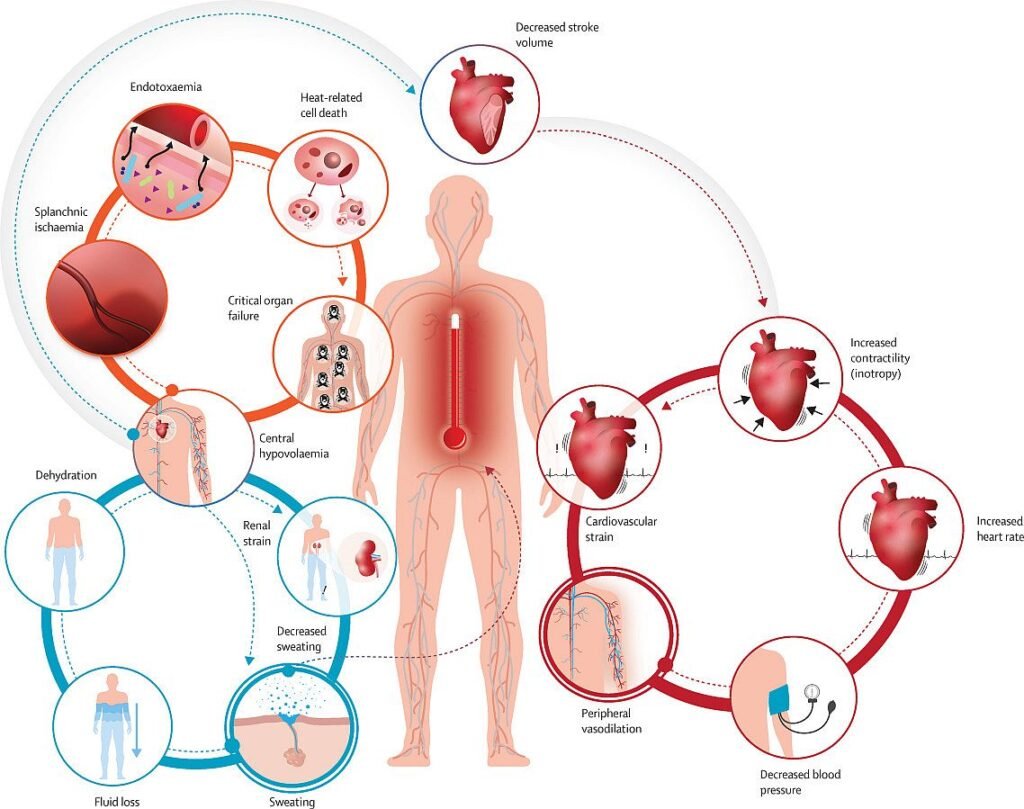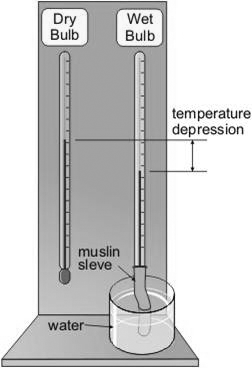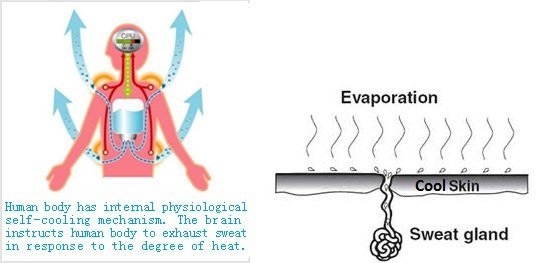Climate change is causing extreme heat, which is challenging the human body’s ability to maintain a stable core temperature of around 98.6 °F (37 °C). “It’s just a function of being a mammal,” says Zachary Schlader, a physiology researcher at Indiana University Bloomington.

Human cells produce heat as they perform their functions and process food for energy. To maintain a stable temperature, our bodies continuously release heat, mainly through the skin. Sweating can accelerate this cooling process.
However, when we are exposed to extremely high temperatures, our body’s ability to regulate heat can be compromised. When our body cannot cool down efficiently, it can lead to various complications such as increased strain on the heart and disruption of kidney and liver functions.
There are various factors that can affect human body’s ability to regulate internal temperature, including age, health, medication, and acclimatization to heat. These factors determine the amount of heat our bodies can release.

Individuals who are either very old or very young experience difficulties in controlling their body temperature. The amount of heat that their body produces and needs to eliminate depends on their level of physical activity.
Generally, scientists consider the maximum capacity of the human body to be at a wet-bulb temperature of 95 °F (35 °C). Wet-bulb temperature is a weird metric, but basically, it’s an effort to incorporate both heat and humidity into one number. In short, it’s the measure of what a thermometer would read with a wet cloth wrapped around it.
Consistently being exposed to heat will cause your body to undergo certain changes. One of these changes is an increase in plasma production, which leads to an increase in overall blood volume. As a result, your heart will not need to exert as much effort to circulate blood, as heat is primarily lost through the blood carrying it to the skin.

The process of sweating also changes—you’ll be quicker to sweat, your sweat will increase in volume, and it will get more dilute, so you’ll lose fewer electrolytes. The whole thing is somewhat akin to how you can adjust to a higher altitude.
However, our bodies can only handle a small increase in temperature over a few weeks. This is not enough to protect people in extreme conditions, especially if they have to work in the heat.
As global temperatures reach new highs, we will need to depend on alternative methods to protect ourselves, such as using cooling devices like air conditioners and fans, finding shade, and reducing physical exertion whenever feasible.
This is why heat presents an equity problem because not everyone can afford or have access to cooling technology or a safe place to stay during hot weather.
Reference- The Lancet, ScienceDirect, National Geographic, New Atlas, The Guardian






